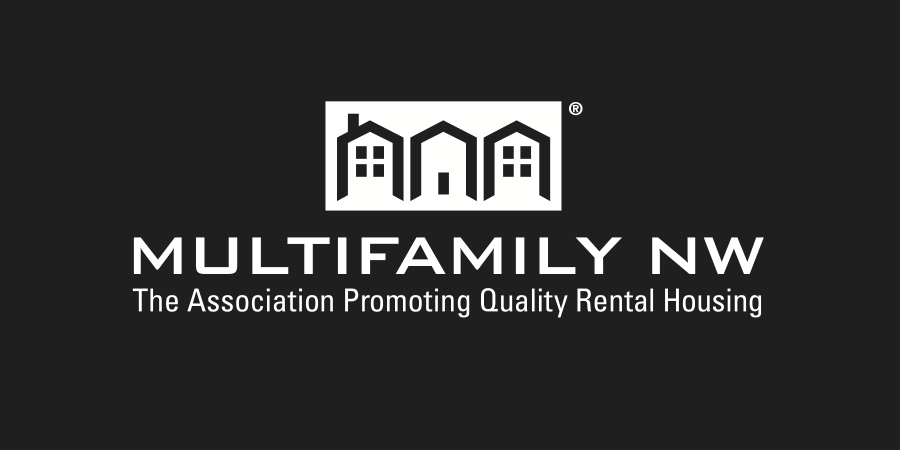Rethinking Real Estate: Why Renting Might Be Your Home-Selling Solution

Rethinking Real Estate: Why Renting Might Be Your Solution
In today’s dynamic real estate market, homeowners often face a pivotal decision: should they sell their property or explore alternative solutions such as renting it out? While selling has traditionally been the go-to approach, renting offers a range of benefits that may align better with your financial goals and market conditions. This article explores why renting might be the right choice for homeowners looking to maximize their investment and navigate the complexities of the real estate market.
Understanding the Current Real Estate Landscape
To appreciate why renting might be a suitable option, it's crucial to understand the current real estate landscape. Home prices, interest rates, and market demand can fluctuate significantly, impacting homeowners' decisions. For example, in recent years, many markets have experienced rapid price increases, creating a seller’s market where high demand and low inventory drive prices up. Conversely, other markets have seen price corrections or downturns, making it less advantageous to sell.
Economic factors also play a significant role. Economic downturns or increased interest rates can dampen buyer enthusiasm, leading to longer time on the market and lower sale prices. Understanding these dynamics helps homeowners make informed decisions about whether to sell or rent.
The Case for Renting
Renting out your property offers several benefits that make it a compelling alternative to selling. Let’s delve into the primary reasons why renting might be the best option for you:
1. Generating Steady Income
One of the most appealing aspects of renting is the potential for a consistent income stream. For homeowners with a mortgage, rental income can cover monthly payments, property taxes, and maintenance costs. This steady cash flow transforms your property from a potential financial burden into an asset that generates income.
For retirees or individuals seeking additional revenue streams, rental income can serve as a valuable supplement to retirement savings or other investments. Depending on your property’s location and condition, rental income can be substantial. For instance, a well-located property in a thriving rental market could generate a significant monthly income, providing financial stability.
2. Market Timing and Appreciation
Real estate markets are cyclical, with periods of growth followed by corrections. If the current market conditions aren’t favorable for selling, renting allows you to hold onto your property until conditions improve. This strategy is beneficial if you believe that property values will be appreciated in the future.
For example, if you own property in an up-and-coming neighborhood or a city with growing demand, renting now and selling later could maximize your returns. This approach allows you to benefit from future appreciation while still earning rental income in the interim.
3. Tax Advantages
Renting out your property can provide several tax benefits. Rental property owners may qualify for deductions on mortgage interest, property taxes, and depreciation. These deductions can reduce taxable income and potentially result in significant savings.
Additionally, expenses related to property management, maintenance, and repairs are tax-deductible. For example, if you incur costs for fixing a leaky roof or upgrading appliances, these expenses can be deducted from your rental income, enhancing the financial benefits of renting. It’s advisable to consult with a tax professional to understand how renting might impact your specific tax situation and to ensure you’re taking full advantage of available deductions.
4. Flexibility and Control
Renting provides flexibility and control that selling does not. If you’re uncertain about relocating or foresee needing the property shortly, renting allows you to retain ownership while generating income. This flexibility is particularly valuable for individuals with careers that may require frequent moves or for those with strong emotional attachments to their homes.
As a landlord, you also retain control over the property. You can decide when and how to sell, make improvements, or adjust rental terms based on market conditions. For example, if you notice that property values are rising in your area, you can choose to sell the property when you feel it’s most advantageous. This level of control enables you to make strategic decisions that align with your long-term goals.
Practical Considerations for Renting Out Your Property
While renting offers many advantages, there are several practical considerations to keep in mind. Here’s a detailed look at what you need to consider before renting out your property:
1. Property Management
Managing a rental property involves various responsibilities, such as finding and screening tenants, handling maintenance requests, and ensuring compliance with rental laws. You have two primary options: self-management or hiring a property management company.
Self-Management: Managing the property yourself can save on management fees but requires a significant time investment. You’ll need to handle tenant interactions, coordinate repairs, and manage lease agreements. This option is best if you have the time and skills to manage the property effectively and prefer a hands-on approach.
Property Management Company: Hiring a property management company can alleviate the day-to-day responsibilities of managing a rental property. These companies handle tenant screening, rent collection, maintenance, and legal compliance, but typically charge a fee of 8-12% of the monthly rent. This option is ideal if you prefer a hands-off approach or lack the time to manage the property yourself.
2. Rental Market Research
Conduct thorough research on the local rental market to set competitive rental rates and attract tenants. Analyze comparable properties in your area to determine appropriate pricing. Consider factors such as location, property size, amenities, and current market trends.
For instance, if similar properties in your neighborhood are renting for $1,500 per month, pricing your rental competitively will increase your chances of finding tenants quickly. Additionally, understanding local demand and rental trends can help you set a fair rate that maximizes your income while remaining attractive to potential renters.
3. Legal and Regulatory Compliance
Being a landlord comes with legal obligations, including compliance with local rental laws and regulations. Familiarize yourself with tenant rights, fair housing laws, and lease agreements to avoid legal issues. Key areas to consider include:
- Lease Agreements: Draft a comprehensive lease agreement that outlines the terms of the rental, including rent amount, payment due dates, security deposits, and maintenance responsibilities. A well-written lease helps protect both parties and clarifies expectations. It’s also essential to include clauses regarding property rules and tenant responsibilities to prevent misunderstandings.
- Tenant Rights: Understand your tenants’ rights regarding privacy, repair requests, and eviction procedures. For example, tenants typically have the right to a habitable living environment, which includes timely repairs of essential systems like heating and plumbing. Ensuring compliance with these rights helps maintain a positive landlord-tenant relationship and avoids potential legal disputes.
- Fair Housing Laws: Adhere to fair housing laws that prohibit discrimination based on race, color, religion, sex, national origin, disability, or familial status. Ensuring equal treatment in tenant selection and property management is crucial for legal compliance and fostering a diverse and inclusive rental environment.
4. Financial Implications
Evaluate the financial aspects of renting versus selling to determine the best option for your situation. Consider the following factors:
- Rental Income vs. Sale Proceeds: Compare potential rental income with the proceeds from a sale. For example, if you anticipate receiving $20,000 in annual rental income versus a potential sale price of $300,000, weigh the long-term benefits of ongoing income against the immediate financial gain from selling.
- Property Expenses: Factor in ongoing expenses such as property management fees, maintenance costs, and insurance. For instance, budgeting for regular upkeep and unexpected repairs is crucial to ensure the property remains in good condition and continues to attract quality tenants.
- Tax Implications: Assess how renting will affect your tax situation, including potential deductions and tax liabilities. Consult with a tax advisor to understand how rental income will impact your overall tax burden and to optimize your tax strategy.
When Selling Might Be a Better Option
While renting offers several benefits, there are situations where selling might be more advantageous. Here are some scenarios where selling could be the preferable choice:
- Immediate Cash Needs: If you require a lump sum of cash for personal or financial reasons, selling the property provides immediate funds. This could be necessary for major expenses such as paying off debt, funding a major purchase, or investing in other opportunities. For instance, if you need to cover medical expenses or finance a significant life event, the proceeds from selling your property can provide the necessary liquidity.
- Optimal Market Conditions: In a strong seller’s market with high demand and rising property values, selling might yield a favorable return on investment. If you can achieve a sale price that meets or exceeds your expectations, selling could be a wise decision. For example, if property values in your area have surged, selling now could result in a substantial profit compared to waiting for a potential market correction.
- Avoiding Landlord Responsibilities: Being a landlord involves responsibilities that some homeowners prefer to avoid. If you lack the time, interest, or resources to manage a rental property effectively, selling might be a more practical solution. This allows you to avoid the complexities of property management, tenant relations, and ongoing maintenance.
Why Hiring a Property Management Company Could Be the Best Option
For many homeowners considering renting out their property, hiring a property management company can be a game-changer. While self-managing a rental property is a feasible option for some, property management companies offer a range of benefits that can make them the superior choice. Here’s an in-depth look at why a property management company might be the best option for you:
1. Expertise and Experience
Property management companies bring a wealth of expertise and experience to the table. They are well-versed in the nuances of property management, including tenant relations, legal compliance, and maintenance. Their professional knowledge can help avoid common pitfalls and ensure that your property is managed efficiently.
For instance, experienced property managers can accurately price your rental, reducing the risk of long vacancies or rental income loss. They also stay updated on local rental laws and regulations, ensuring that your property complies with all legal requirements. This expertise can be particularly valuable if you’re new to renting or if you own multiple properties.
2. Tenant Screening and Placement
One of the most critical aspects of managing rental property is finding and retaining quality tenants. Property management companies have established procedures for screening potential tenants, including background checks, credit reports, and rental history evaluations. This thorough screening process helps ensure that you find reliable and responsible tenants who are more likely to pay rent on time and take care of the property.
Moreover, property managers can handle the entire tenant placement process, from advertising your property and conducting showings to signing lease agreements. This streamlines the process and saves you time and effort.
3. Maintenance and Repairs
Maintaining and repairing a rental property can be time-consuming and costly. Property management companies have established relationships with contractors and maintenance professionals, allowing them to handle repairs and maintenance efficiently and often at reduced costs. They can quickly address maintenance issues, ensuring that your property remains in good condition and minimizing the risk of further damage.
For example, if a tenant reports a plumbing issue, the property management company can promptly arrange for a licensed plumber to address the problem, often with a preferred vendor discount. This proactive approach helps prevent small issues from becoming larger, more expensive problems.
4. Rent Collection and Financial Management
Property management companies handle rent collection and financial management, which can simplify your financial life. They ensure that rent is collected on time, manage late fees, and handle any issues related to non-payment. This systematized approach can reduce the stress of managing rent collection yourself and ensure consistent cash flow.
Additionally, property management companies provide detailed financial reports, including income and expense statements, which can be valuable for budgeting and tax purposes. They also handle accounting tasks such as tracking expenses, paying bills, and managing security deposits, ensuring that all financial aspects of your property are well-organized and transparent.
5. Legal Compliance and Risk Management
Navigating the legal landscape of rental property management can be complex. Property management companies are knowledgeable about local, state, and federal rental laws and regulations. They ensure that lease agreements comply with legal requirements and handle legal matters such as evictions and disputes professionally.
For example, if a tenant needs to be evicted for non-payment or lease violations, a property management company can manage the legal process, including filing the necessary paperwork and representing you in court if required. Their expertise in handling legal issues helps minimize the risk of costly legal battles and ensures that your property is managed in accordance with the law.
6. Marketing and Vacancy Management
Effective marketing is crucial to attracting tenants and minimizing vacancy periods. Property management companies have the resources and expertise to market your property effectively through various channels, including online listings, social media, and local advertising. They can create compelling property descriptions and take high-quality photos to showcase your property’s best features.
Moreover, property managers handle the logistics of showing the property to potential tenants and coordinating lease signings. Their marketing strategies and efficient tenant placement practices help reduce vacancy times and ensure that your rental property generates a steady income.
7. Time and Stress Management
Managing a rental property requires a significant time investment, especially if you have multiple properties or a demanding schedule. Hiring a property management company allows you to delegate these responsibilities to professionals, freeing up your time and reducing stress.
For example, if you travel frequently or have a busy career, a property management company can handle all aspects of property management on your behalf, from tenant communications and maintenance to financial management and legal compliance. This hands-off approach provides peace of mind and allows you to focus on other priorities.
Conclusion
Rethinking real estate strategies can open up new opportunities for homeowners. Renting out a property instead of selling offers a range of benefits, from generating a steady income to retaining ownership for future appreciation. However, it’s essential to carefully evaluate the advantages and challenges associated with renting.
Consider factors such as property management, market conditions, financial implications, and personal goals when making your decision. Conduct thorough research, seek professional advice, and understand your options to make an informed choice that aligns with your long-term objectives.
Whether you choose to rent or sell, each option presents unique opportunities and challenges. Renting may provide financial rewards and flexibility while selling could offer immediate returns and simplicity. Ultimately, the best choice depends on your circumstances, financial goals, and market conditions.










